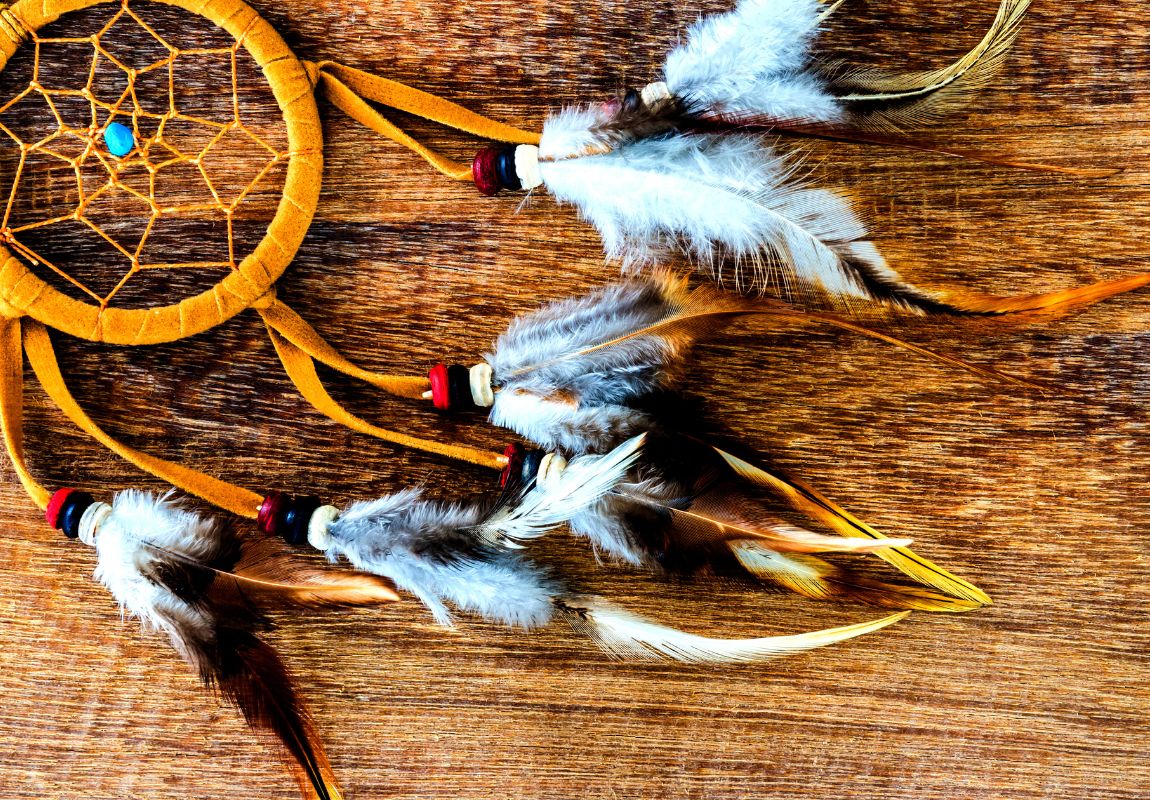The trope of substance abuse within Indigenous communities is deeply rooted in American social narratives, maintained in various forms, including popular culture. At a time when Native American rehab centers are available across the United States, it’s important to examine the facts and myths surrounding addiction in Native American communities — and how cultural mindfulness can help address it. Aliya Heath Group offers culturally sensitive and mindfulness practices in our Native American rehab programs. Our skilled healing team is available to help you reach your goal of sobriety using methods rooted in traditional native therapies and practices.
Fact and Fiction: Native American Addiction Statistics
Despite representing just 2 percent of the U.S. population, Native Americans have the highest rates of alcohol, marijuana, cocaine, and hallucinogen use disorders and the second-highest methamphetamine abuse rates. Native Americans are especially vulnerable to the consequences of substance abuse, including high dropout rates, violence, chronic health issues, and suicidal behavior.
Attributing these Native American addiction statistics solely to genetic predisposition oversimplifies a complex issue that’s rooted in colonization and harmful stereotypes. Take the “Firewater Fairytale,” which is a perfect example of this oversimplification. The myth blames genetics for the high rates of alcoholism among Native Americans, rather than acknowledging the historical and societal factors at play.
History of Victim-Blaming
Thomas Jefferson exhibits this victim-blaming mentality in a letter to a Native American chief. In it, he argues that Whites have only “sold what individuals wish to buy” and that “spirituous liquors are not in themselves bad” and Natives simply cannot refrain from an “ill use” of them.
Contrary to popular belief, it was Europeans who introduced alcohol to Native people as a tool of trade and diplomacy hundreds of years ago. By the time European settlers showed up on Native lands, alcohol had become part of treaty negotiations, often used as a bargaining chip. Furthermore, the extreme drinking habits of White settlers and those on the frontiers influenced Indigenous drinking patterns. This led to a lack of rules and protocols for socially acceptable drinking within Native communities. It also was said to lead to addiction rates that are twice as high as those among whites. Alcohol-related death rates are also said to have at least tripled at the time.
Get confidential help from our addiction and mental health treatment facilities located across the United States. Call to join one of our quality programs today!
Speak With Our Admissions TeamSubstance Use in Cultural Practices
It’s important to note that Indigenous cultures have long-standing traditions of consciousness-altering practices involving plants, such as datura, peyote, and tobacco, used for spiritual purposes. Some Southwestern tribes even ritualistically consumed alcohol made from fermented plants before European contact. However, these traditional forms of alcohol were notably weaker than the distilled spirits introduced by Europeans.
Despite efforts by tribal and colonial authorities to impose bans on alcohol trade in Indian territories, the measures were ineffective. Legislation outlawing the sale of alcohol to Native Americans initially passed by Congress in 1832 and not repealed until 1953, similarly failed to curb alcohol consumption among Indigenous populations.
With all that said, recent research from the University of Arizona reveals a more nuanced reality. While binge and heavy drinking rates among Native Americans mirror those of White individuals, Native American communities exhibit higher rates of alcohol abstinence — a testament to the resilience and diverse experiences within these populations.
Even so, despite being disproven, the myth persists and ignores the true causes of Native American addiction. It’s important to shift the focus away from genetics and toward the historical and social factors that contribute to addiction. By doing so, we can better understand and address the root causes of substance abuse and provide appropriate Native American healing for addiction.
What Is Native American Rehab Like?
Native American rehab centers offer a transformative approach to healing that sets them apart from conventional rehab programs. At the core of a Native American program is a deep respect for Indigenous culture and traditions, which infuses every aspect of the treatment process.
What distinguishes Native American rehab centers is their holistic approach to wellness. They address not only the physical aspects of addiction but also the spiritual, emotional, and cultural aspects. Whereas traditional rehab models tend to prioritize clinical interventions, Native American programs include ancestral teachings and ceremonial practices in their framework.
The focus of Native American rehab is multifaceted, aiming to restore balance and harmony within individuals and communities. Treatment goals extend beyond achieving sobriety to encompass reconnecting participants with their cultural identity, fostering a sense of belonging, and empowering them to reclaim their lives free from addiction.
Culture as a Healing Tool
Central to the treatment approach is using Native culture as a healing tool. Ceremonies such as sweat lodge ceremonies, talking circles, and smudging rituals serve as sacred spaces for reflection, purification, and renewal. These practices not only provide health benefits but also honor ancestral wisdom and promote spiritual growth.
Culturally focused healing acknowledges the interconnectedness of individuals with their communities and the natural world. It emphasizes the importance of restoring harmony within oneself and with one’s surroundings. By incorporating traditional teachings and practices, Native American rehab programs offer participants a profound sense of purpose and belonging that transcends addiction.
Native American addiction programs also empower individuals to draw strength from their heritage, tapping into the resilience and wisdom passed down through generations. By reclaiming their Indigenous identity and reconnecting with ancestral traditions, participants can start a journey of self-discovery and empowerment.
Looking for quality treatment for substance abuse and mental health that’s also affordable? Aliya Health Group's treatment facilities accept most major insurance providers. Get a free insurance benefits check now!
Check Your CoverageWhere Can I Find Rehab for Native Americans?
Native Americans battling alcohol and drug addiction often don’t know where to look or don’t know there’s a specific program for them. Aliya Health Group’s Native American Program (NAP) is available at treatment centers throughout the country.
Native American Rehab Centers at Aliya Health Group
At Aliya Health Group, our NAP is structured around culturally sensitive healing practices that target addiction recovery, mental illness, and co-occurring disorders. It’s based on the ceremony of healing to allow for deep inner restoration and a greater connection with one’s heritage.
NAP highlights include:
- Culturally based curriculum and teachings
- Individual and group counseling
- Counselors trained in culturally sensitive care
- Native American group facilitators
- Traditional Native American healing practices
- Ceremonies conducted by Native elders
- Therapeutic sweat lodge ceremonies
- Healing circles
- Grief and loss processing
- Regular visits to local reservations
- Recovery support meetings with local tribes
- Staff members with Native American ancestry
- Aftercare services through tribal referrals
- Community integration
Healing Starts Now
Our programs also use the latest evidence-based and holistic treatment options for Native American substance abuse. Our unique levels of care include inpatient treatment, partial hospitalization treatment, intensive outpatient care, and outpatient programs. We can also help you find a sober home or sober living community following rehab.
Substance use disorders can ruin someone’s life. Native American substance abuse is no different. Issues like alcohol use disorders can be treated at addiction treatment centers. Treatments like dual diagnosis treatment, relapse prevention training, behavioral therapy, equine therapy, and more. We can also help with withdrawal symptoms during alcohol detox, cocaine detox, opioid detox, meth detox, and more.
As we continue to confront the challenges of addiction in Native American communities, it’s essential to recognize the power of cultural mindfulness. By spotlighting Indigenous voices and offering culturally based programs, we can create a future where all individuals have access to empowering healing resources. Call today and learn more about residential inpatient care or outpatient treatment.
- American Indians/Alaska Natives and Substance Abuse Treatment Outcomes: Positive Signs and Continuing Challenges – PMC (nih.gov)
- Native American Plant Use – Glacier National Park (U.S. National Park Service) (nps.gov)
- American Indians and Alcohol – PMC (nih.gov)
- Study Debunks Notions About Native Americans, Alcohol | University of Arizona News





















